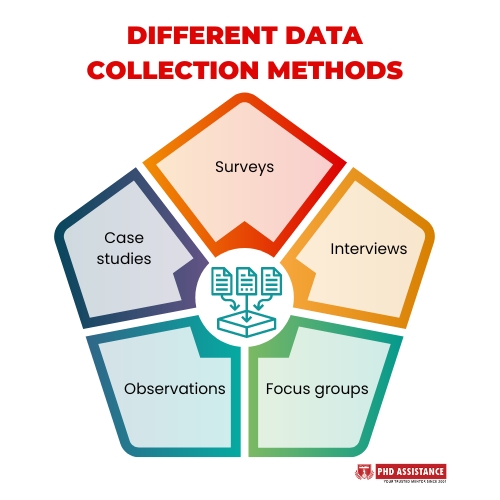Different Data Collection Methods
The objective of this Blog is to explain the characteristics of data (qualitative and quantitative), secondary data, primary data, various primary data collection methods, data collection method choices, and, most importantly, the suitability of data collection method choices to enable PhD scholars in India to understand the important difference between research methodology/design and research data collection methods/method choices, thereby guiding them to select an appropriate research methodology/design.
Introduction
The paper “How to Choose an Appropriate Research Data Collection Method and Method Choice among Various Research Data Collection Methods and Method Choices during PhD Program in India?” identifies several data collection methods and discusses how to choose the appropriate method for a given research question. Some of the data collection methods discussed in the paper include:
- Surveys: Surveys are a standard data collection method that involves gathering information from many participants using a standardized questionnaire. Surveys help collect data on a specific population’s attitudes, beliefs, and behaviours.
- Interviews: Interviews involve one-on-one conversations between a researcher and a participant. Interviews can be structured or unstructured and conducted in-person or remotely. Interviews are useful for collecting detailed and nuanced information about a specific topic.
- Focus groups: Focus groups involve a group of participants discussing a specific topic under the guidance of a moderator. Focus groups can provide insights into the perspectives and experiences of a specific population.
- Observations: The researcher observes and records participants’ behaviour in a natural setting. Observations help collect data on behaviour that cannot be easily self-reported.
- Case studies involve the in-depth analysis of a single case or a minor number of cases. Case studies are helpful for deeply understanding a specific phenomenon or situation.

The paper suggests that the data collection method should be based on several factors, including the research question, study population, and available resources. Researchers should consider each method’s strengths and limitations and choose the most appropriate for their research question and context. Finally, it is also important to consider ethical issues and ensure that participants are fully informed and consent to participate in the research.
PhD Assistance
PhD. Assistance understands that data collection is a vital stage in research and can substantially influence the results or conclusion. Based on the study subject and data source, our global team of PhD professionals aids you with data collection. PhD specialists have educated our data-gathering personnel from all over the world, and their tacit and explicit experience has enabled them to collect any survey (personal interview, mail, in-house), focus groups, and so on, and put it into a more accessible format, therefore aiding in decision-making.
References
R., Ganesha and Aithal, P. S., How to Choose an Appropriate Research Data Collection Method and Method Choice among Various Research Data Collection Methods and Method Choices during PhD. Program in India? (November 4, 2022). International Journal of Management, Technology, and Social Sciences (IJMTS) 2022, 7(2), 455-489. ISSN: 2581-6012., Available at SSRN:or



